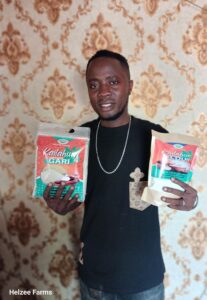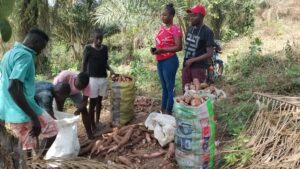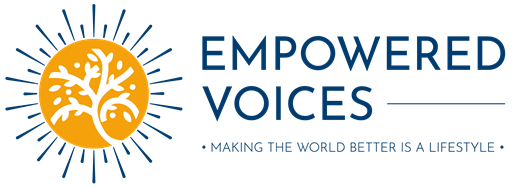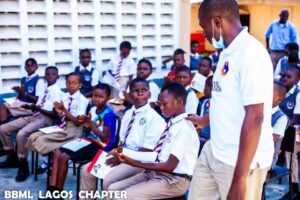…that was the defining moment. I lost time, I lost job, and I have bills to pay, and people to take care of.
Read, learn and be inspired by this interview session with #UPGBiashara Entrepreneur, Mohamed Kawa. Follow us through his journey of discovery and impact!
Full name, country, and your place of birth?
My full name is Mohamed Kawa, born in Kenema District, Kenema City in Eastern Sierra Leone.
Family/educational background and experience while growing up.
I was born into a very small family: I have six siblings, four boys, two girls and I’m the eldest. I came from a very humble background. Both parents are illiterate. They did their best to see us get education but it was not easy, especially for me because I was born during the war.
I was born on March 10, 1991, and the war broke out on March 23, 1991, so it was really painstaking for them to take care of a newborn during that period.
While growing up, I was very passionate about education. When other kids were going for extra mural lessons, I would go with them even when I knew my mom did not have the money to pay. My dad was not staying with us, he was in the rural areas struggling and trying to fend for us. Interestingly, the lesson teacher noticed I was very intelligent as I was able to recite most of the things he taught the other kids so he grew interested in me, and encouraged my mum to do whatever she could to send me to school. So, I started primary school at age seven. Normally they should have placed me in the first year, but after the interview, they sent me to the second year.
I spent five years in primary school, and proceeded to secondary school but things were not still easy. There were times I nearly dropped out, but I had many friends in school who liked me because of my passion for education, most of them supported me with lunch. Thankfully, during my senior secondary school examinations to college, I had a completely different experience, a stranger, turned elder brother, paid my tuition until I graduated.
After graduation, I went for internship and then the rest is history. I hold a Bachelor of Science in social work, from one of the top universities in the country, Njala University, in southern Sierra Leone.
Tell us about your vision and aspiration and more about your field of expertise.
Like I said, throughout my secondary and university education, I was in Arts department but when I started working, I joined a German non-governmental organization that promotes agricultural climate change issues and the likes. So, I started seeing the challenges people are facing in my country, this made me develop interest in agriculture.
In the area of expertise, I see myself as an all-round agriculturist, although I like to be called a farmer because this is a dream that I’m pushing; to make farming fashionable among youths especially those that are educated, because they think that Agriculture is only meant for the illiterates. I also do trainings on Entrepreneurship, Good Agricultural Practices, Agro-processing, etc. because we want to train people, especially youths, to be able to do well in their respective areas in the agricultural field. In summary, I was trained in the university as a social worker, but I have chosen agriculture as a profession because of the numerous impacts that it will have not only me, but the society, my country, and the world at large, seeing all the problems that we are catering for.
What or what event inspired you to choose this path?

In 2020, we all witnessed the impact of COVID in the world. It was very severe in my country Sierra Leone, that it led to the closure of the four-year project I was working on. I had worked for three years, 2020 was supposed to be the last year, but unfortunately COVID came and there was no hope for extension. We were dropped to wait for the next phase, which we couldn’t tell when, because no one knew how long COVID-19 was going to stay.I t was like going back to square one.
This was my first permanent job after university since 2018. I had no time to even save money because my salary was very small and not commensurate with my qualification. But, you know, you just have to get attached, and build experience. By then, my family do not have a roof over their head in our city, Kenema so, whatever I received, I was putting into construction, so that my parents could have a place that they will call theirs. So, there was nothing after the project, nothing to fall back on. I was struggling, and then I told myself at one quiet moment that whenever I have another job, I must start something by a way of self-employment, no matter how small.
Fast forward to 2021, I got promoted in the same organization and that was the starting point of my dream coming to reality. Of course, salary got a bit better and I started saving immediately. I began looking out for ideas and opportunities on the internet, and meeting people for guidance. In 2022, I finally kicked off Helzee Farms to provide food, job, and solutions to other problems in my country.
So, that was the defining moment. I lost time, I lost job, and I have bills to pay, and people to take care of. It was not easy.
Tell us more about Helzee Farm
Helzee Farms is a combination of two names, my name and that of my wife. She’s Helga. My friends call me Zaky, and for whatever reason, the name has stuck. so it’s Helga and Zaky Farms. She’s very supportive even though initially she did not believe in this, because she’s an educationist. But I said to myself, I am the one that envisioned this, and I know how impactful it will be, not only for me, but for the general good of humanity. Therefore, it’s on me to give her evidences and reasons to believe. So, I did, and she came fully on board.
In Helzee Farms, we are into agribusiness. We deal in organic farming, because even though we want to farm, we don’t want to jeopardize or compromise the health of people by applying chemicals to food. We believe in organic farming, sustainable agriculture, we have to do things that will keep food production ongoing.
We also believe in nature conservation. This is the reason we provide a very unique approach to climate change. We do not plant just any trees, because we think if we just plant any tree, people are still going to cut them down so, we plant cash crop trees like Cocoa, Coffee, cashew, etc.
We are into poultry, we decided to go into poultry, because one of my guiding principles is that whatever we are doing, we try to identify problems and see how we can provide solutions. We are not just going to do something because other people are doing it, we are going to scan our community, our county, our area, and see what is lacking.
We found out that there is no functional poultry in the districts that we are operating. Eventually, we started our poultry farm. We have not yet started supplying eggs, but we will get there soon. We are still learning the rudiments.
We are into agro-processing:
We process palm kernel into palm kernel oil, and its attendant residues like the palm kernel cake. We sell these to people that refine it for vegetable oil. Other people buy it to produce soap, biofuel and others.
We also use the palm kernel oil, herbs and plants to make bathing and laundry soap. We sell the cake to pig farmers and we are on course to start turning the shell of the palm kernel into briquettes for coal, which is to emphasize on our commitment to climate change.

We also process cassava into cassava flakes or garri, and that is one of our most popular and most sought-after brands in the country right now. Our brand, Kailahun Garri, is named after the District we are operating in, and this district is known for agriculture. But as far as we can gather, no agricultural product has ever been named after it. We think if everyone is thinking of Kailahun District as the predominant district for agriculture, then it is only fair and necessary that we have something like this to resonate with us.
We also have the Kailahun Cassava and Fufu Flour. We want to make consumption very safe and easy for people. With this flour, you don’t need to worry about all the ordeals in Fufu processing. We have you covered.
Helzee Farms is here to make farming and agriculture in general fashionable among the youths. Youths do not believe that agriculture is for them. Every year for instance, universities and colleges in the country release thousands of youths into the job market, and there is no job, especially for the fact that we all want a white collar job, whether lucrative or not.
To us, we think if youths can accept that agriculture or farming is a job that they can start with little money, the problem of unemployment will be reduced drastically. We started barely a year ago, and in the past one year that we started, we have employed so many people.
To be continued.
Interviewed by #EmpoweredVoices Editorial team.
©EmpoweredVoices




One Response
Such an inspiring story!! A few years ago, I have watched the film “The boy who harnessed the wind” by Chiwetel Ejiofer and reading the story of Mohammad Kawa just took me back to the amazing film.